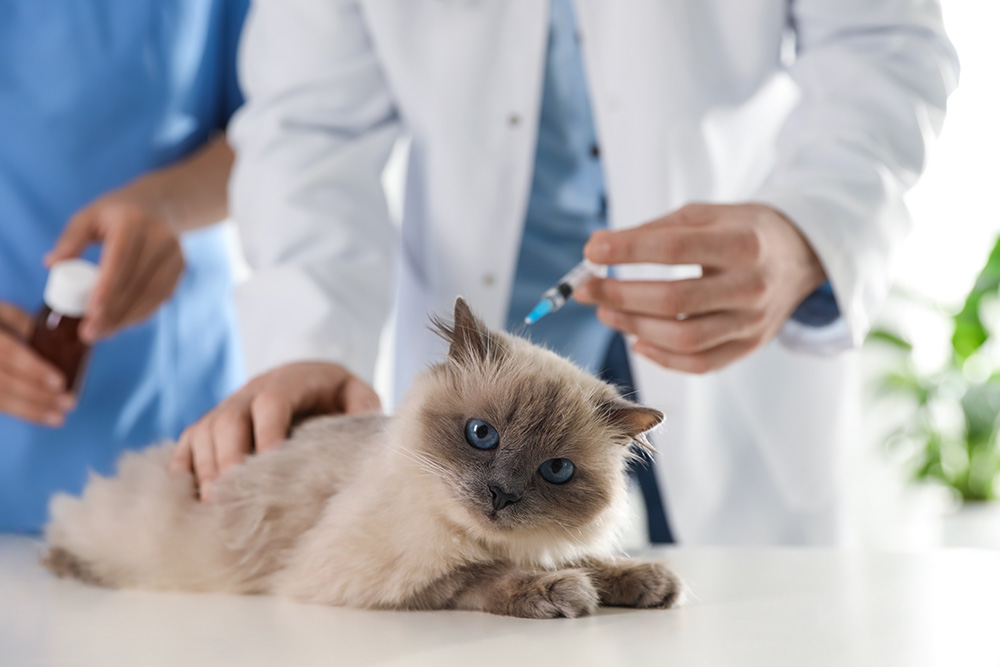Pet Vaccinations: Essential Protection for Every Life Stage at Flora Family Vet in Kissimmee, FL
Understanding the Importance of Pet Vaccinations
What Are Pet Vaccinations and Why Are They Crucial?
Vaccines are vital for protecting pets by stimulating their immune systems to create antibodies against specific pathogens. This process builds immune memory, enabling your pet to recognize and combat diseases if exposed in the future. Vaccinations are essential for pets of all ages, shielding them from various debilitating and potentially fatal diseases throughout their lives. For more detailed insights, the Vaccinations for Pet Owners – AVMA offers comprehensive and trustworthy information.
The Impact of Vaccinations on Public Health
Vaccinating pets affects not only individual health but also community health, especially for diseases transmissible to humans. In Florida, rabies prevention is crucial, and vaccinating pets against rabies is both a legal requirement and a critical measure to prevent its spread among pets and humans alike.
Rabies is fatal once clinical symptoms appear, affecting the nervous system and causing behavioral changes, paralysis, and death. Vaccination forms a critical barrier, ensuring this deadly virus does not gain a foothold in the community.
Essential Vaccines for Pets in Kissimmee, Florida
Core Vaccines for Dogs and Cats
In Kissimmee, core vaccines for dogs include rabies, distemper, parvovirus, and hepatitis, while cats require rabies, feline distemper, herpesvirus, and calicivirus vaccinations. These vaccines target prevalent diseases that pose serious risks to your pet’s health. For more on feline vaccinations, visit What Should I Know About My Cat’s Vaccinations?.
Canine parvovirus is highly contagious, leading to severe gastrointestinal issues and potentially death if untreated. Similarly, feline calicivirus can cause respiratory infections and oral disease, particularly in young or immunocompromised cats.
Non-Core Vaccines: Tailored to Your Pet’s Lifestyle
Non-core vaccines, such as Bordetella for dogs and Leukemia for cats, depend on factors like outdoor activity, interaction with other animals, or time spent in boarding facilities. These vaccines are customized based on your pet’s lifestyle and potential exposure to certain diseases.
Bordetella bronchiseptica is a primary bacterium causing kennel cough, a highly contagious respiratory disease in dogs, especially those in social settings. The feline leukemia virus (FeLV) significantly affects cats’ immune systems, increasing vulnerability to infections. Cats venturing outdoors or living with other cats are at higher risk and should be vaccinated.
Vaccination Schedules for Every Life Stage
Puppy and Kitten Vaccination Protocols
Starting at six weeks old, puppies and kittens should begin their vaccination schedules, continuing every 3-4 weeks until around 16 weeks. This series is crucial for building a strong immune foundation. Early vaccines shield young pets from diseases they are particularly vulnerable to due to immature immune systems.
Adult Pet Vaccination Needs
Adult pets require regular vaccinations to maintain disease immunity. The frequency and type of booster vaccines depend on each pet’s lifespan and health status, determined during annual wellness visits. Boosters ensure the immune system remains primed to fend off diseases encountered as pets age.
Senior Pets and Vaccinations
As pets age, their immune system efficacy can decrease, necessitating adjustments in vaccination schedules. Maintaining protection in senior years is tailored to their ongoing health and lifestyle. Veterinarians assess the benefits versus risks of continued vaccination, especially in pets with chronic health conditions.
Common Questions and Expert Answers on Pet Vaccinations
Safety and Efficacy of Vaccines
Vaccines are highly effective and safe, though some pets may experience mild side effects like temporary lethargy or soreness. Serious reactions are rare, but discussing concerns with your veterinarian ensures the best care for your pet.
In rare cases, allergic reactions can occur, requiring immediate veterinary attention. However, these incidents are significantly outweighed by the protective benefits vaccines provide.
The Cost of Pet Vaccinations in Kissimmee
Vaccinating your pet is more cost-effective than treating preventable diseases. Costs vary, but preventative health measures like vaccinations save expenses and heartache in the long term. For example, treating parvovirus in dogs can be costly, whereas a vaccine is a fraction of that cost.
Why Choose Flora Family Vet for Your Pet’s Vaccinations?

Meet Our Qualified Team
Our team consists of dedicated veterinary professionals passionate about animal health. Learn more about our skilled team here. Our veterinarians and staff are experienced and committed to staying updated with the latest in veterinary science to provide the best care for your pet.
Comprehensive Care Beyond Vaccinations
At Flora Family Vet, we offer a full range of services to support your pet’s health beyond vaccinations, including wellness and prevention, diagnostics, and dental care. Explore our comprehensive services here. Our holistic approach ensures your pet receives comprehensive care, from regular check-ups to diagnostic testing.
Contacting Flora Family Vet for Your Pet’s Needs
Schedule Your Appointment Today
Ensuring your pet’s health starts with vaccinations. Contact Us to schedule a visit. Our Kissimmee, FL location offers a welcoming space for both pets and their owners, aiming for a stress-free experience and personalized care.
How long do vaccinations protect my pet?
Vaccine protection duration varies. Core vaccines generally offer longer-lasting immunity, often up to three years, while some non-core vaccines may require annual boosters. Your veterinarian will help determine the optimal schedule based on your pet’s needs.
Can my indoor pet skip vaccinations?
Even indoor pets should be vaccinated, as they can still be exposed to diseases through human contact, other pets, or pests. Vaccinations are a crucial part of their health care regimen to prevent unexpected illness.








Leave A Comment